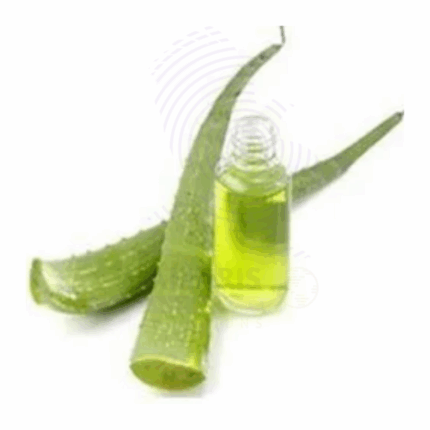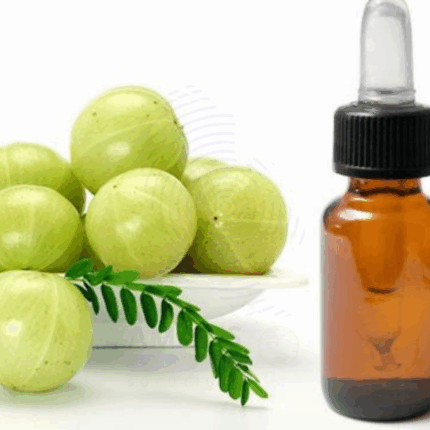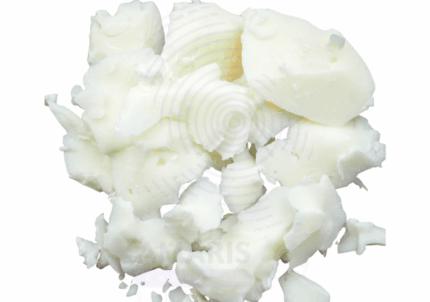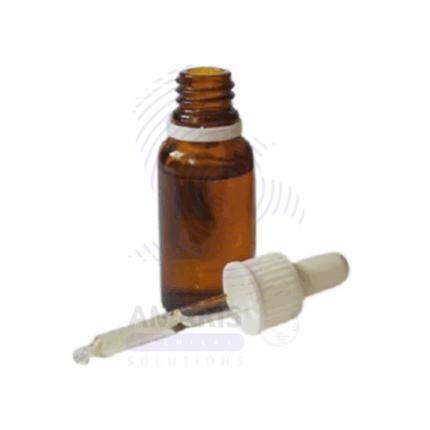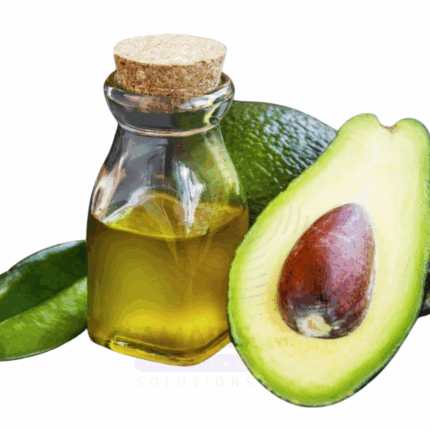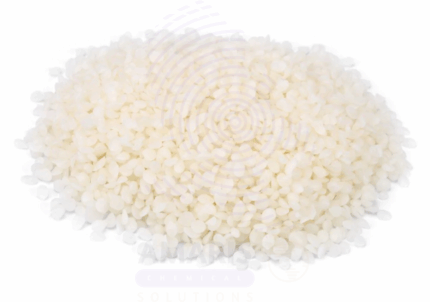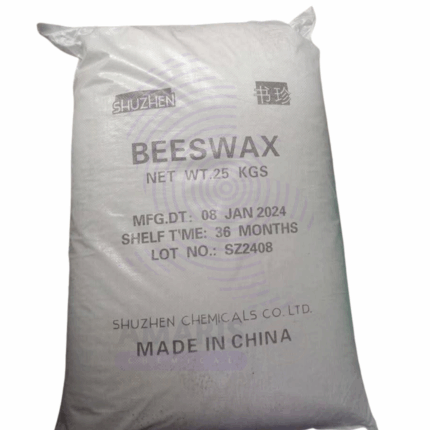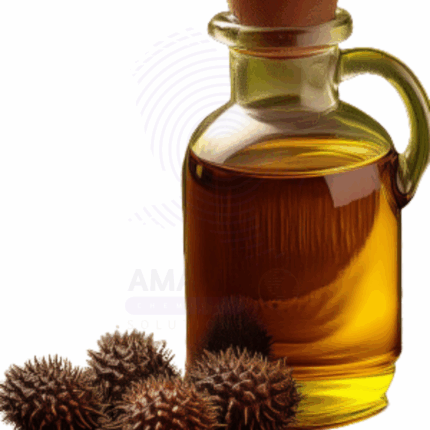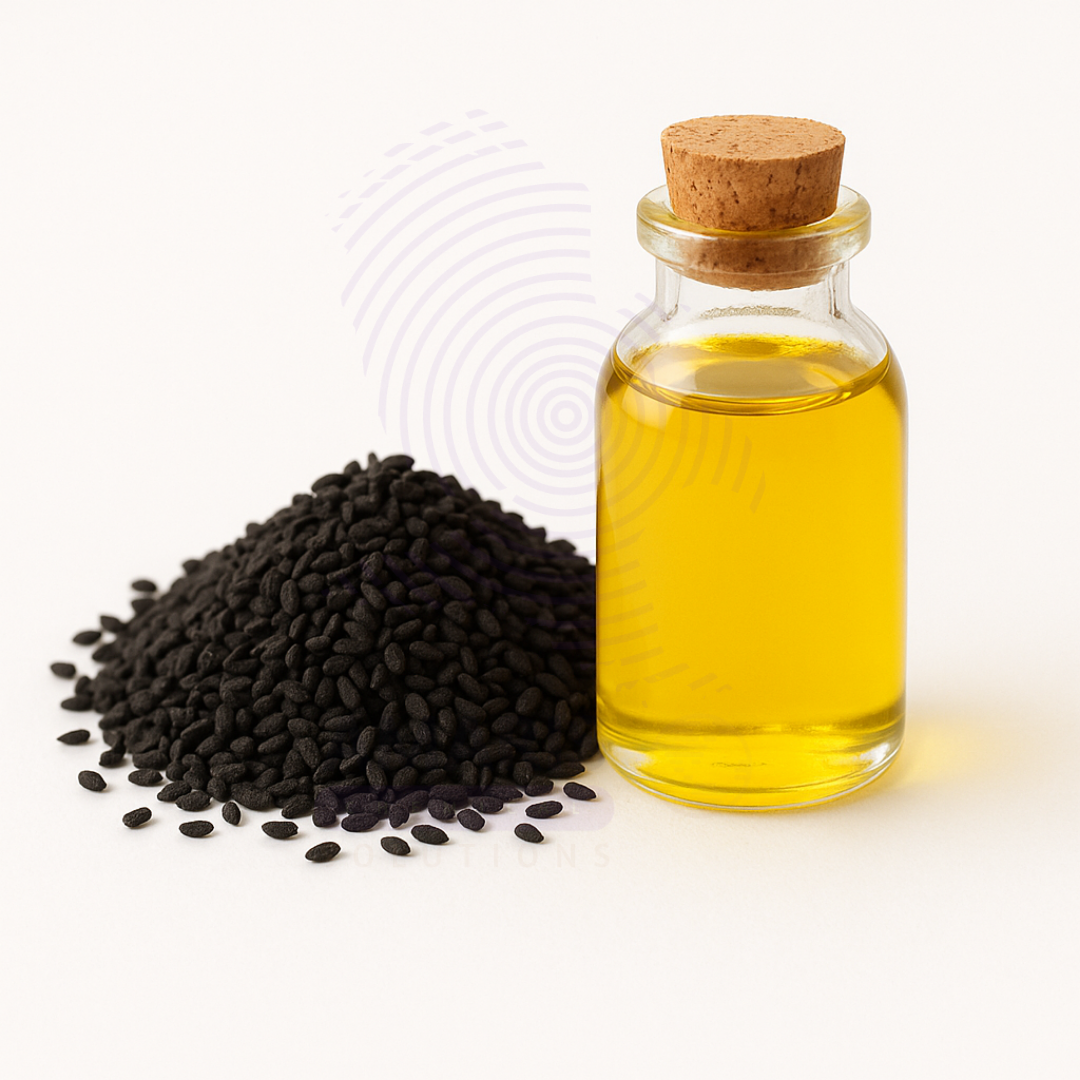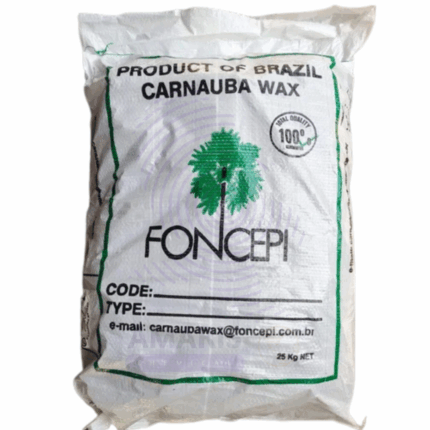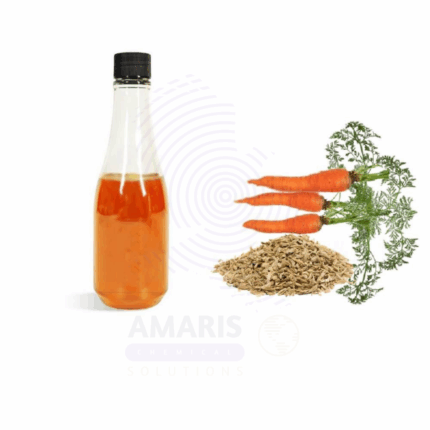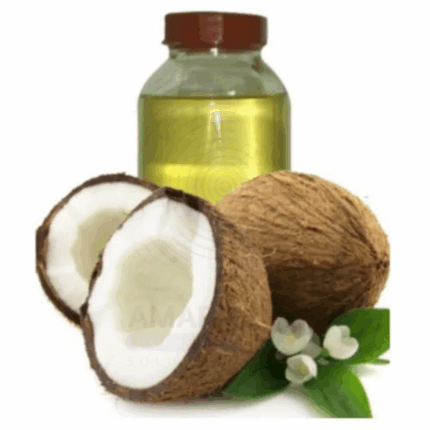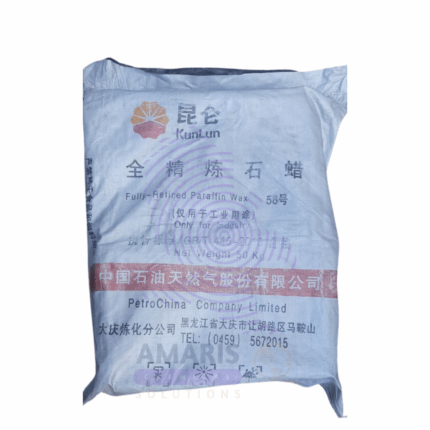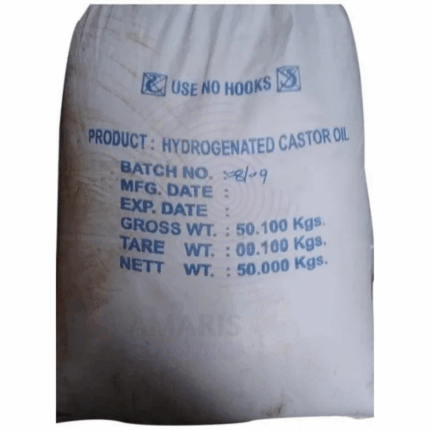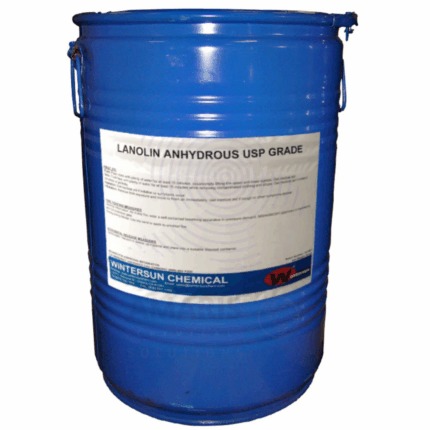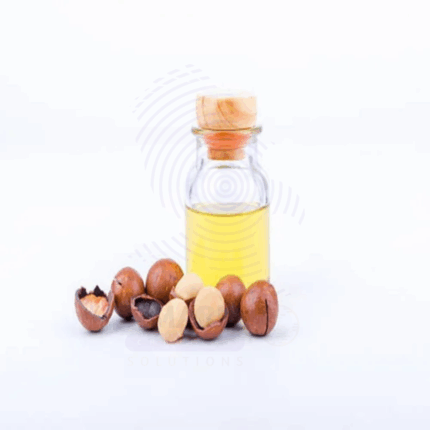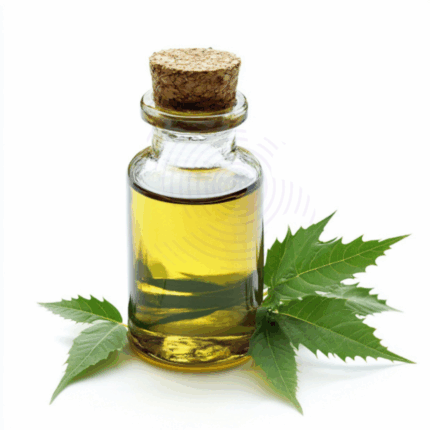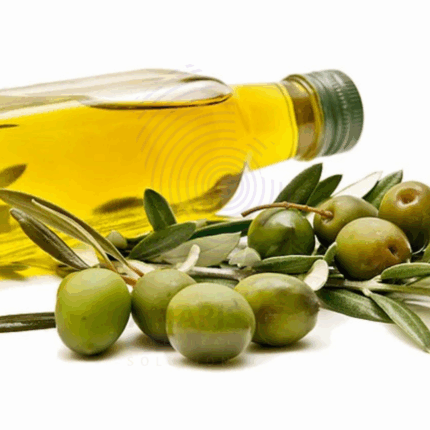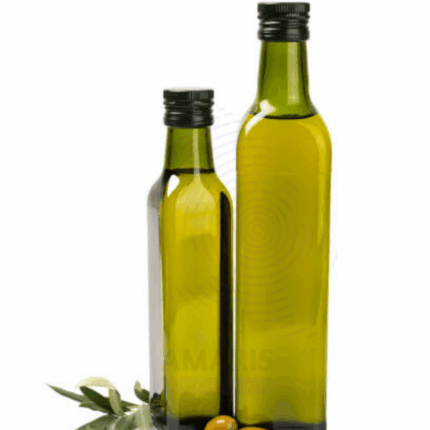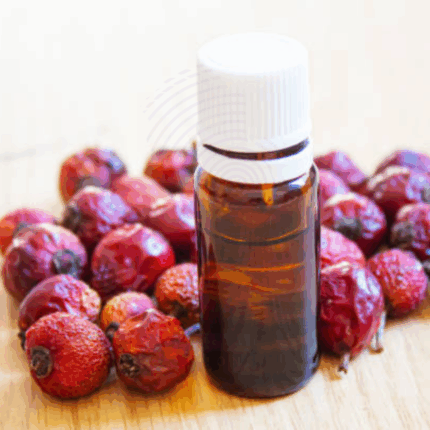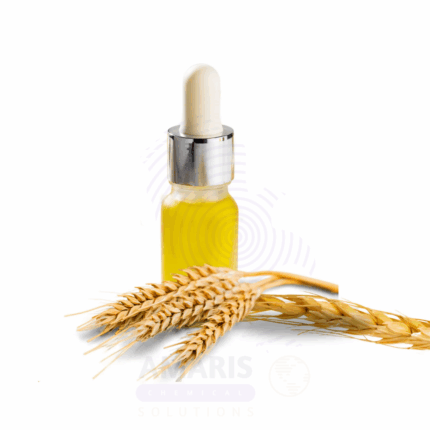
Emollients are moisturizing agents used in cosmetics and personal care products to soften, smooth, and hydrate the skin by forming a protective barrier that prevents moisture loss. Common emollients include natural oils (like jojoba or coconut oil), butters (such as shea or cocoa butter), and synthetic compounds (like silicones or fatty alcohols). They are key ingredients in lotions, creams, lip balms, and conditioners, helping to improve skin texture and relieve dryness. Emollients are especially beneficial for sensitive or eczema-prone skin, providing long-lasting hydration and improving skin elasticity.
Aloe Vera Oil
Aloe Vera Oil is an oil-based extract derived by infusing Aloe vera (Aloe barbadensis) leaves into a carrier oil such as coconut, soybean, or sunflower oil. It captures the beneficial compounds of aloe—including polysaccharides, vitamins, enzymes, and amino acids—in an oil-soluble form ideal for cosmetic, therapeutic, and personal care applications. Known for its soothing, anti-inflammatory, and moisturizing properties, Aloe Vera Oil is widely used in skin and hair care formulations.
This gentle, skin-friendly oil is suitable for sensitive skin and is commonly employed in after-sun products, healing ointments, massage oils, and anti-aging creams. It provides hydration, calms irritation, and promotes skin regeneration while adding emollient and conditioning benefits.
Amla Oil
Amla Oil, also known as Indian Gooseberry Oil, is a natural oil derived from the fruit of the Phyllanthus emblica tree, either through infusion of dried amla fruits in a carrier oil (like coconut or sesame) or via cold pressing. Rich in vitamin C, tannins, flavonoids, and essential fatty acids, amla oil is renowned for its rejuvenating and nourishing properties. It is widely used in hair care formulations to promote hair growth, strengthen follicles, and reduce hair fall and premature greying. Amla oil is also applied topically to skin for its antioxidant, anti-inflammatory, and moisturizing benefits. With a slightly earthy aroma and light to medium viscosity, it blends easily with other cosmetic ingredients and essential oils.
It is a staple in Ayurvedic formulations and finds use in both personal care and traditional wellness products. Its versatility also extends to massage blends and herbal preparations in the cosmetic and nutraceutical sectors.
Apricot Wax
Apricot Wax is a natural wax extracted from the kernels (seeds) of apricot fruit (Prunus armeniaca). It is a light, pale yellow to amber-colored wax known for its emollient, moisturizing, and film-forming properties. Apricot Wax is valued in cosmetics and personal care formulations for providing texture, stability, and a smooth, non-greasy feel. It is biodegradable, skin-friendly, and often used as a natural alternative to synthetic waxes. Derived through cold-pressing or solvent extraction, it contains natural fatty acids, esters, and vitamin E, contributing to its nourishing effects. Apricot Wax is commonly used in lip balms, creams, lotions, hair care products, and pharmaceutical ointments.
Avocado Oil
Avocado Oil is a nutrient-rich, plant-based oil cold-pressed from the pulp of ripe avocados (Persea americana). Recognized for its deep green color and mildly nutty aroma, this oil is highly valued for its high content of monounsaturated fatty acids, especially oleic acid, along with vitamins A, D, and E, sterols, lecithin, and antioxidants.
Due to its excellent penetration, moisturizing, and regenerative properties, Avocado Oil is widely used in cosmetics, personal care, pharmaceutical, and nutraceutical formulations. It helps in restoring skin elasticity, promoting collagen synthesis, and soothing inflammation, making it ideal for dry, sensitive, or aging skin. In hair care, it strengthens and softens hair, improves scalp health, and reduces dandruff.
Additionally, refined, food-grade Avocado Oil is used in cooking due to its high smoke point and nutritional profile. It is also increasingly found in dietary supplements and therapeutic blends
Avocado Wax
Avocado wax is a natural plant-derived wax extracted primarily from the pulp and seed of the avocado fruit (Persea americana). It appears as a hard, yellowish wax with excellent emollient, film-forming, and moisturizing properties. Valued for its biodegradability, compatibility with various formulations, and sustainability, avocado wax is widely used as a natural alternative to synthetic waxes in cosmetics, pharmaceuticals, food, and industrial applications.
Beeswax
Beeswax is a natural wax produced by honeybees of the genus Apis. It is secreted by worker bees from specialized glands and used to build honeycomb cells. Beeswax is a complex mixture of esters, fatty acids, and hydrocarbons, characterized by a pale yellow to brown color, a pleasant honey-like aroma, and a firm yet pliable texture. It has excellent emulsifying, binding, and protective properties, making it widely used in cosmetics, pharmaceuticals, food, and industrial applications. Beeswax is prized for its natural origin, biodegradability, and skin-friendly characteristics.
Black Castor Oil
Black Castor Oil is a highly viscous, nutrient-dense oil extracted from roasted castor beans (Ricinus communis). Unlike traditional castor oil, this variant is produced by roasting the beans before pressing, resulting in a dark amber to black hue and a distinct, smoky aroma. The roasting process enhances the oil’s ricinoleic acid content, giving it superior anti-inflammatory, antimicrobial, and moisturizing properties.
It is widely used in cosmetic, personal care, and pharmaceutical formulations due to its ability to promote hair growth, strengthen roots, hydrate dry skin, and soothe scalp conditions. It also acts as a natural humectant, drawing moisture into skin and hair. In traditional wellness and therapeutic practices, Black Castor Oil is valued for its warming and circulatory-boosting effects.
Black Cumin Seed Oil
Black Cumin Seed Oil, also known as Nigella Sativa Oil or Black Seed Oil, is a cold-pressed oil extracted from the seeds of the Nigella sativa plant. Revered for centuries in traditional medicine systems like Ayurveda and Unani, this oil is packed with thymoquinone, essential fatty acids, vitamins, and antioxidants that contribute to its potent anti-inflammatory, antimicrobial, and immune-boosting properties.
It is widely used in cosmetic, pharmaceutical, and nutraceutical formulations. Black Cumin Seed Oil supports skin healing, helps reduce acne and inflammation, and can nourish scalp and hair follicles. Internally, it is known to promote digestive health, respiratory wellness, and immune system support. The oil has a slightly bitter, pungent aroma and golden to dark amber color. It is available in cosmetic, pharmaceutical, and food grades for varied applications.
Carnauba Wax
Carnauba Wax is a natural vegetable wax obtained from the leaves of the Copernicia prunifera palm tree, native to northeastern Brazil. It appears as a hard, brittle, yellow to brownish-yellow wax with a faint, characteristic odor. Known as the “queen of waxes,” Carnauba Wax is prized for its exceptionally high melting point, glossy finish, and excellent hardness. It is a premium wax widely used in cosmetics, food, pharmaceuticals, automotive, and industrial applications as a natural, biodegradable alternative to synthetic waxes. Its film-forming, emulsifying, and protective properties make it highly versatile for use in coatings, polishes, and skincare products.
Castor Oil
Castor Oil virgin is a pale yellow vegetable oil obtained through cold-pressing the seeds of the Ricinus communis plant. This method preserves its natural composition of ricinoleic acid, vitamins, and minerals. Known for its thick viscosity and mild, characteristic odor, it is a versatile oil with excellent moisturizing, lubricating, and therapeutic properties. It is widely used in cosmetics, pharmaceuticals, and industrial applications due to its unique chemical structure and beneficial effects.
Coconut Oil Refined
Coconut Oil Refined is a purified oil extracted from dried coconut meat (copra) that undergoes refining, bleaching, and deodorizing (RBD) to remove impurities, odor, and flavor. The resulting oil is clear, colorless to pale yellow, with a neutral scent and a high smoke point, making it suitable for diverse applications. It is rich in medium-chain triglycerides (MCTs) that offer moisturizing, antimicrobial, and emollient properties. Refined Coconut Oil is widely used in cosmetic formulations, pharmaceutical excipients, food products, and cleaning agents for its versatility, stability, and skin-friendly characteristics.
Fully Refined Paraffin Wax
Fully Refined Paraffin Wax is a highly purified, odorless, white to pale yellow wax obtained from the refining of petroleum-derived crude paraffin wax. It consists primarily of saturated hydrocarbons (alkanes) with chain lengths typically between C20 and C40. Due to its excellent chemical stability, non-toxicity, and versatility, Fully Refined Paraffin Wax is widely used across numerous industries including cosmetics, pharmaceuticals, food packaging, candle making, rubber processing, and electrical insulation. It exhibits a high melting point, low volatility, and good water resistance.
Hydrogenated Castor Oil
Hydrogenated Castor Oil, also known as castor wax, is a hard, brittle, and high-melting-point wax derived by the hydrogenation of pure castor oil. This white to off-white, odorless substance is non-toxic and insoluble in water but dispersible in surfactant systems. Its primary component is hydrogenated ricinoleic acid triglyceride, and it is prized for its excellent lubricating, emulsifying, thickening, and consistency-enhancing properties.
Due to its stability, non-reactivity, and film-forming capability, Hydrogenated Castor Oil is widely used in cosmetics, personal care, pharmaceuticals, industrial lubricants, coatings, plastics, and more. It improves product texture, enhances emulsion stability, and provides moisture retention in skincare applications.
Lanolin Anhydrous
Lanolin Anhydrous is a purified, waxy substance derived from the sebaceous glands of sheep’s wool. It appears as a yellow to amber, semi-solid wax with a characteristic mild odor. Lanolin is highly valued for its excellent emollient, moisturizing, and protective properties, making it widely used in cosmetic, pharmaceutical, and personal care formulations. The anhydrous form is free from water, which enhances its stability and shelf life, and allows it to act as a natural barrier to lock moisture into the skin.
Macadamia Nut Oil
Macadamia Nut Oil is a rich, golden, cold-pressed oil extracted from the nuts of the Macadamia integrifolia tree. Known for its high content of monounsaturated fatty acids—particularly oleic and palmitoleic acid—it closely resembles the natural oils found in human skin. It is lightweight, non-greasy, and easily absorbed, making it ideal for cosmetic, personal care, and culinary applications.
Highly emollient and nourishing, Macadamia Nut Oil is used in skincare, haircare, massage blends, and anti-aging formulations. Its oxidative stability also makes it suitable for use in food products, including cooking oils and dressings. It provides deep moisturization, improves skin elasticity, and protects against environmental stressors.
Neem oil
Neem oil is a natural vegetable oil pressed from the fruits and seeds of the neem tree (Azadirachta indica). It is characterized by its strong, pungent odor and dark brown color. Rich in active compounds like azadirachtin, nimbin, and fatty acids, neem oil is renowned for its insecticidal, antifungal, and antibacterial properties. It is widely used in organic farming, cosmetics, and traditional medicine for its therapeutic and protective benefits.
Olive Oil Pomace
Olive Oil Pomace is a refined oil extracted from the olive pulp, skin, and pits after the first pressing. It is a lower-cost olive oil variant with a mild flavor and good stability. Rich in monounsaturated fatty acids, particularly oleic acid, and antioxidants like vitamin E and polyphenols, pomace olive oil offers nutritional benefits and excellent oxidative stability. It is widely used in culinary, cosmetic, pharmaceutical, and industrial applications due to its moisturizing properties and mild aroma. Pomace olive oil is favored in formulations where a lighter olive aroma is desired, and it also serves as a base oil in soap making, skincare, and massage oils.
Olive Oil Virgin
Olive Oil Virgin is a natural oil obtained from the first cold pressing of olives without the use of chemicals or excessive heat, preserving its rich flavor and nutritional qualities. It is characterized by a fruity aroma and a balanced taste, containing high levels of monounsaturated fatty acids, particularly oleic acid, as well as antioxidants such as polyphenols and vitamin E. Virgin olive oil is widely valued for its health benefits, culinary versatility, and skin conditioning properties. It is extensively used in food preparation, cosmetic formulations, and pharmaceutical applications, offering moisturizing, antioxidant, and anti-inflammatory effects.
Palm kernel Oil
Palm Kernel Oil is a versatile edible and industrial oil extracted from the kernels (seeds) of the oil palm fruit (Elaeis guineensis). It is distinct from palm oil, which is derived from the fruit’s pulp. This oil is characterized by its light yellow color and mild, nutty aroma. Rich in medium-chain fatty acids, particularly lauric acid, Palm Kernel Oil exhibits excellent moisturizing, cleansing, and emulsifying properties. Widely used in food, cosmetics, and industrial applications, it is valued for its stability, texture-enhancing qualities, and skin-conditioning benefits.
Sesame oil
Sesame oil is a versatile vegetable oil extracted from sesame seeds (Sesamum indicum). It is available in both unrefined (light color, nutty flavor) and refined (neutral flavor) varieties. Rich in antioxidants like sesamol and sesamin, as well as unsaturated fats, it is valued for its stability, nutritional benefits, and mild skin-conditioning properties. It is widely used in cooking, cosmetics, and pharmaceutical formulations.
Sunflower Oil
Sunflower Oil is a versatile vegetable oil extracted from the seeds of Helianthus annuus, native to North America but now cultivated globally. It is commonly obtained through cold pressing or refining and is valued for its light texture, neutral scent, and high content of essential fatty acids—particularly linoleic and oleic acids—as well as natural tocopherols (vitamin E). With excellent antioxidant, emollient, and anti-inflammatory properties, Sunflower Oil is widely used in food products, skincare formulations, hair care, massage therapies, and pharmaceutical preparations. Its ability to nourish and protect the skin barrier makes it a key ingredient across both wellness and industrial markets.
Wheatgerm Oil
Wheatgerm Oil is a nutrient-rich, golden-colored oil extracted from the germ of the wheat kernel (Triticum vulgare), typically through cold pressing or solvent extraction. It is exceptionally high in vitamin E, essential fatty acids (especially linoleic and linolenic acid), squalene, phytosterols, and antioxidants, making it one of the most potent natural oils for skin and hair rejuvenation. With its slightly nutty aroma and viscous texture, Wheatgerm Oil is widely used in cosmetic, pharmaceutical, nutraceutical, and aromatherapy applications for its antioxidant, anti-aging, moisturizing, and healing benefits.


 Preservatives(food)
Preservatives(food) Flavor Enhancers
Flavor Enhancers Acidulants
Acidulants Sweeteners
Sweeteners Antioxidants
Antioxidants Colorants(food)
Colorants(food) Nutraceutical Ingredients (food)
Nutraceutical Ingredients (food) Nutrient Supplements
Nutrient Supplements Emulsifiers
Emulsifiers
 Collectors
Collectors Dust Suppressants
Dust Suppressants Explosives and Blasting Agents
Explosives and Blasting Agents Flocculants and Coagulants
Flocculants and Coagulants Frothers
Frothers Leaching Agents
Leaching Agents pH Modifiers
pH Modifiers Precious Metal Extraction Agents
Precious Metal Extraction Agents
 Antioxidants(plastic)
Antioxidants(plastic) Colorants (Pigments, Dyes)
Colorants (Pigments, Dyes) Fillers and Reinforcements
Fillers and Reinforcements Flame Retardants
Flame Retardants Monomers
Monomers Plasticizers
Plasticizers Polymerization Initiators
Polymerization Initiators Stabilizers (UV, Heat)
Stabilizers (UV, Heat)
 Antifoaming Agents
Antifoaming Agents Chelating Agents
Chelating Agents Coagulants and Flocculants
Coagulants and Flocculants Corrosion Inhibitors
Corrosion Inhibitors Disinfectants and Biocides
Disinfectants and Biocides Oxidizing Agents
Oxidizing Agents pH Adjusters
pH Adjusters Scale Inhibitors( water)
Scale Inhibitors( water)
 Antioxidants(cosmetic)
Antioxidants(cosmetic) Emollients
Emollients Fragrances and Essential Oils
Fragrances and Essential Oils Humectants
Humectants Preservatives
Preservatives Surfactants(cosmetic)
Surfactants(cosmetic) Thickeners
Thickeners UV Filters
UV Filters
 Fertilizers
Fertilizers Soil Conditioners
Soil Conditioners Plant Growth Regulators
Plant Growth Regulators Animal Feed Additives
Animal Feed Additives Biostimulants
Biostimulants Pesticides (Herbicides, Insecticides, Fungicides)
Pesticides (Herbicides, Insecticides, Fungicides)
 Active Pharmaceutical Ingredients (APIs)
Active Pharmaceutical Ingredients (APIs) Excipients
Excipients Solvents(pharmaceutical)
Solvents(pharmaceutical) Antibiotics
Antibiotics Antiseptics and Disinfectants
Antiseptics and Disinfectants Vaccine Adjuvants
Vaccine Adjuvants Nutraceutical Ingredients (pharmaceutical)
Nutraceutical Ingredients (pharmaceutical) Analgesics & Antipyretics
Analgesics & Antipyretics
 Analytical Reagents
Analytical Reagents Solvents(lab)
Solvents(lab) Chromatography Chemicals
Chromatography Chemicals Spectroscopy Reagents
Spectroscopy Reagents microbiology-and-cell-culture-reagents
microbiology-and-cell-culture-reagents Molecular Biology Reagents
Molecular Biology Reagents Biochemical Reagents
Biochemical Reagents Inorganic and Organic Standards
Inorganic and Organic Standards Laboratory Safety Chemicals
Laboratory Safety Chemicals Specialty Laboratory Chemicals(Special Laboratory Equipment)
Specialty Laboratory Chemicals(Special Laboratory Equipment)
 Demulsifiers
Demulsifiers Hydraulic Fracturing Fluids
Hydraulic Fracturing Fluids Scale Inhibitors(oil)
Scale Inhibitors(oil) Surfactants(oil)
Surfactants(oil) Drilling Fluids
Drilling Fluids
 Dyes and Pigments
Dyes and Pigments Bleaching Agents
Bleaching Agents Softening Agents
Softening Agents Finishing Agents
Finishing Agents Antistatic Agents
Antistatic Agents
 Admixtures
Admixtures Waterproofing Agents
Waterproofing Agents Sealants and Adhesives
Sealants and Adhesives Curing Compounds
Curing Compounds Concrete Repair Chemicals
Concrete Repair Chemicals Anti-Corrosion Coatings
Anti-Corrosion Coatings
 Surfactants(cleaning)
Surfactants(cleaning) Builders
Builders Enzymes
Enzymes Solvents (Cleaning)
Solvents (Cleaning) Fragrances
Fragrances
 Electronic Chemicals
Electronic Chemicals Catalysts
Catalysts Lubricants
Lubricants Photographic Chemicals
Photographic Chemicals Refrigerants
Refrigerants Automotive chemicals
Automotive chemicals Pyrotechnic Chemicals
Pyrotechnic Chemicals
 Biodegradable Surfactants
Biodegradable Surfactants Bio-based Solvents
Bio-based Solvents Renewable Polymers
Renewable Polymers Carbon Capture Chemicals
Carbon Capture Chemicals Wastewater Treatment Chemicals
Wastewater Treatment Chemicals
 Pigments
Pigments Solvents(paint)
Solvents(paint) Specialty Coatings
Specialty Coatings Binders/Resins
Binders/Resins Additives
Additives Driers
Driers Anti-Corrosion Agents
Anti-Corrosion Agents Functional Coatings
Functional Coatings Application-Specific Coatings
Application-Specific Coatings
 Fresh Herbs
Fresh Herbs Ground Spices
Ground Spices Whole Spices
Whole Spices Spice Blends
Spice Blends Dried Herbs
Dried Herbs
 Leavening Agents
Leavening Agents Dough Conditioners
Dough Conditioners Flour Treatments
Flour Treatments Fat Replacers
Fat Replacers Decoratives
Decoratives Preservatives(baking)
Preservatives(baking)
 Plasticizers & Softeners
Plasticizers & Softeners Reinforcing Agents
Reinforcing Agents Adhesion Promoters
Adhesion Promoters Vulcanizing Agents
Vulcanizing Agents Antidegradants
Antidegradants Blowing Agents
Blowing Agents Fillers & Extenders
Fillers & Extenders Accelerators & Retarders
Accelerators & Retarders

















